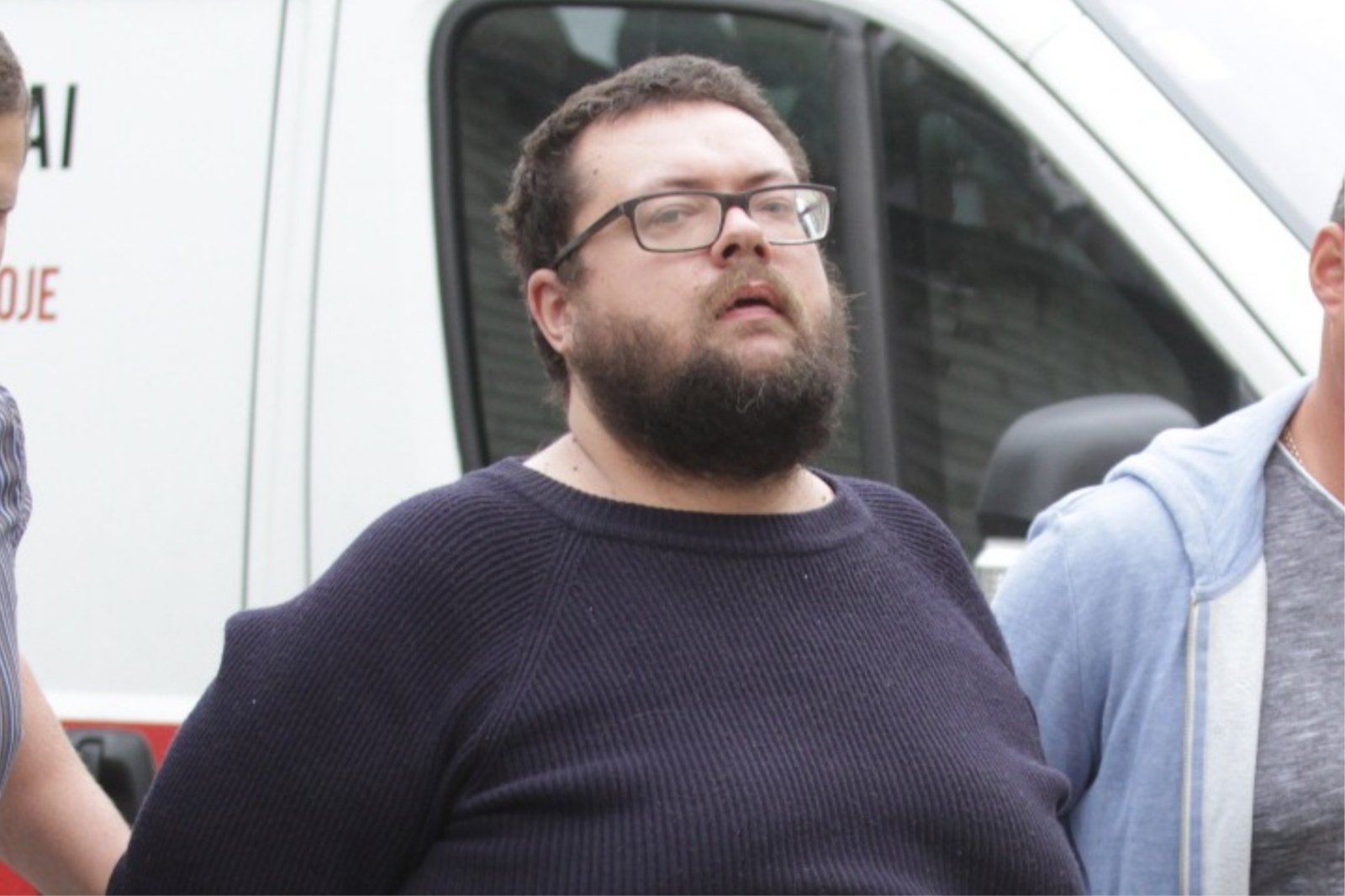That’s how it opened for A. Yegorov on Tuesday Alytus Correctional Facilitywhere he has recently served his sentence. It is true that the Kaunas citizen was released just two months before the end of his sentence – the term of imprisonment was to end on June 10.
“Circumstances that positively characterize A. Yegorov suggest that the convict has changed his behavior and pursued his life goals by lawful means, will abide by the law and will not commit new crimes, parole from a correctional institution will not contradict the principle of justice and the purpose of punishment,” Laima Šeputienė a panel of judges is chaired.
According to the court, the conditional release of a convicted person from a correctional institution is not a complete release from the sentence imposed, as the person released on parole is under supervision and supervision, violations of which may result in revocation of the conditional release and return to the correctional facility without perform.
A. Yegorov was behind bars in 2017. On 10 June, he was sentenced to 8 years in prison, but in reality it will not end in 2025 but in 2022. June 10 – 5 July of the previous year. the president Gitano Nausėda the Grace Commission, headed by the Grace Commission, decided to commute the sentence of imprisonment to 3 years.
A. Yegorov was convicted for the fact that in 2017. On 8 June, under the influence of alcohol, he deliberately suffocated his disabled mother under a pillow. Two days later, he wrote a message to his friend on Facebook: “I stopped my mother’s suffering, I couldn’t stand the tension anymore.”
He also spoke to the pre-trial judge – the man explained that he wanted to end his mother’s suffering because she was not moving, emptying herself.
“I wanted to end my mother and my suffering,” Yegorov said.
He explained that he had initially cared for his mother with his father, and that when he had died, he had had to bear the very heavy, morally, physically and financially burdensome burden of caring for his mother for the last few years.
According to the husband, the mother had been cared for in a nursing hospital for some time, but at the end of the 4-month period, he was unable to pay for further maternal care, so the only option was home care.
“In addition to my daily work and worries, I had to constantly take care of a patient who couldn’t take care of herself, which required a lot of effort, I didn’t have a day to see my tortured mother, and because of my closed lifestyle, I didn’t want those around me to see my mother.” , He later explained in court.
The man noted that the mother tried to combine nursing with work, but was unsuccessful, no social worker came home, so she had a lot of psychological problems and once even tried to commit suicide.
A. Yegorov cared for his mother, who had a serious illness (which affected both her body and mind) for about 15 years. The convict has obtained the title of FIDE master awarded by the World Chess Federation.
Aleksandras Yegorovas
© DELFI / Kęstutis Kasciukevičius
–
A. Yegorov did not abandon chess behind bars – at Christmas he organized and conducted a series of lectures for the convicts “Basics of Chess Playing” at the Marijampolė Correctional Institution.
In order for A. Yegorov to be released on parole, the Probation Commission near the Alytus Correctional Facility decided. It is true that only three out of five members of the commission voted in favor of such a decision – two did not support such a verdict, because in their opinion it is necessary to take into account the seriousness of the committed crime. The opinion of these two members of the commission was also supported by the Alytus court, which decided not to satisfy the decision of the commission regarding the early release of A. Yegorov.
However, A. Yegorov appealed against the decision of the Alytus court and received a favorable decision.
According to the court, the implementation of his social rehabilitation plan and progress in reducing the risk of criminal behavior are becoming crucial in resolving the issue of A. Yegorov’s conditional release from the correctional facility.
The court noted that Yegorov had been convicted for the first time and that even two mitigating circumstances had been recognized in his conviction.
“Both the circumstances of the commission of the crime and the data describing the convict’s criminogenic past (or more precisely its absence) do not allow to assess A. Yegorov as a person who is extremely dangerous to society,” the judges emphasized. “In addition, the presidential decree has reduced the custodial sentence imposed on the convict, which undoubtedly positively characterizes the convict.”
According to the judges, the convict “currently recognizes the factors that led him to crime well enough, perceives the consequences for himself and others, expresses regret, and admits guilt for committing the crime.”
“It has been established that the convict does not support the provisions specific to the prison subculture, nor does it mean discriminatory provisions, and implements the measures provided for in the individual social rehabilitation plan,” the court noted. , which is confirmed by the reduced risk of re-offending.
In addition, according to the court, A. Yegorov had a higher education in the humanities (Bachelor of Philosophy) before his imprisonment, and also studied and sought a master’s degree in a correctional institution.
“The convict is critical of the crime, he regrets his actions, he avoids conflict situations in the prison, and his provisions do not support criminal behavior,” the judges who opened the gates to the mother’s murderer emphasized.
A. Yegorov had tried to release him earlier, once his request had already been granted by Vilkaviškis court, but then the prosecutors appealed against the court ruling – the Kaunas Regional Court, which examined the complaint, stated that the principle of justice would not be implemented if the convict was released earlier.
–
It is strictly forbidden to use the information published by DELFI on other websites, in the media or elsewhere, or to distribute our material in any form without consent, and if consent has been obtained, DELFI must be cited as the source.


